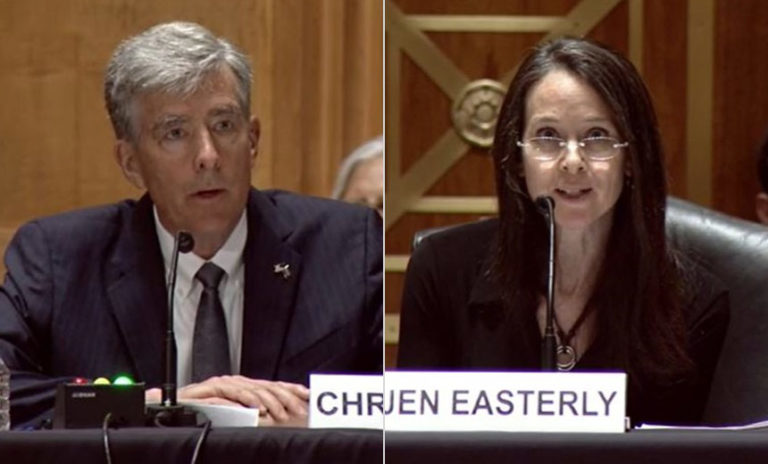European Commission mulls cyber security task force

Image: Pete Linforth, Pixabay
The European Commission has proposed the setting up of a new Joint Cyber Unit to tackle the rising number of serious cyber incidents impacting public services, as well as the life of businesses and citizens across the European Union.
Advanced and coordinated responses in the field of cybersecurity have become increasingly necessary, as cyberattacks grow in number, scale and consequences, impacting heavily our security. All relevant actors in the EU need to be prepared to respond collectively and exchange relevant information on a ‘need to share’, rather than only ‘need to know’, basis.
First announced by President Ursula von der Leyen in her political guidelines, the Joint Cyber Unit would aim to bring together resources and expertise available to the EU and its Member States to effectively prevent, deter and respond to mass cyber incidents and crises. Cybersecurity communities, including civilian, law enforcement, diplomatic and cyber defence communities, as well as private sector partners, too often operate separately. With the Joint Cyber Unit, they will have a virtual and physical platform of cooperation: relevant EU institutions, bodies, and agencies together with the Member States will build progressively a European platform for solidarity and assistance to counter large-scale cyberattacks.
The recommendation on the creation of the Joint Cyber Unit is an important step towards completing the European cybersecurity crisis management framework. It is a concrete deliverable of the EU Cybersecurity Strategy and the EU Security Union Strategy, contributing to a safe digital economy and society.
As part of this package, the Commission has announced progress made under the Security Union Strategy over the past months. Furthermore, the Commission and the High Representative of the Union for Foreign Affairs and Security Policy have presented the first implementation report under the Cybersecurity Strategy, as requested by the European Council, while at the same time they have published the Fifth Progress Report on the implementation of the 2016 Joint Framework on countering hybrid threats and the 2018 Joint Communication on increasing resilience and bolstering capabilities to address hybrid threats. Finally, the Commission has issued the decision on establishing the office of the European Union Agency for Cybersecurity (ENISA) in Brussels, in accordance with the Cybersecurity Act.
The Joint Cyber Unit would act as a platform to ensure an EU coordinated response to large-scale cyber incidents and crises, as well as to offer assistance in recovering from these attacks. Today, the EU and its Member States have many entities involved in different fields and sectors. While the sectors may be specific, the threats are often common – hence, the need for coordination, sharing of knowledge and even advance warning.
The participants will be asked to provide operational resources for mutual assistance within the Joint Cyber Unit. The Joint Cyber Unit will allow them to share best practice, as well as information in real time on threats that could emerge in their respective areas. It will also work at an operational and at a technical level to deliver the EU Cybersecurity Incident and Crisis Response Plan, based on national plans; establish and mobilise EU Cybersecurity Rapid Reaction Teams; facilitate the adoption of protocols for mutual assistance among participants; establish national and cross-border monitoring and detection capabilities, including Security Operation Centres (SOCs); and more.
The EU cybersecurity ecosystem is wide and varied and through the Joint Cyber Unit, there will be a common space to work together across different communities and fields, which will enable the existing networks to tap their full potential. It builds on the work started in 2017, with the Recommendation on a coordinated response to incidents and crises – the so-called Blueprint.
The Commission is proposing to build the Joint Cyber Unit through a gradual and transparent process in four steps, in co-ownership with the Member States and the different entities active in the field. The aim is to ensure that the Joint Cyber Unit will move to the operational phase by 30 June 2022 and that it will be fully established one year later, by 30 June 2023. The European Union Agency for Cybersecurity, ENISA, will serve as secretariat for the preparatory phase and the Unit will operate close to their Brussels offices and the office of CERT-EU, the Computer Emergency Response Team for the EU institutions, bodies and agencies.
Funding for the Joint Cyber Unit will come primarily through the Digital Europe Programme and will be used to build a physical and virtual platform, establish and maintain secure communication channels, as well as improve detection capabilities. Additional contributions, especially to develop Member States’ cyber-defence capabilities, may come from the European Defence Fund.
TechCentral Reporters
Professional Development for IT professionals
The mission of the Irish Computer Society is to advance, promote and represent the interests of ICT professionals in Ireland. Membership of the ICS typically reduces courses by 20%. Find out more


 Print
Print




